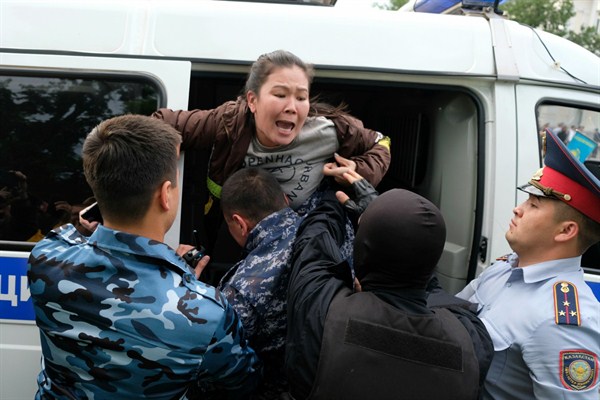Authorities in Kazakhstan cracked down on a series of large-scale protests before and after a tightly controlled presidential election on June 9, arresting thousands of demonstrators as well as a number of journalists. Kassym-Jomart Tokayev, an ally of Kazakhstan’s longtime autocratic leader Nursultan Nazarbeyev, won the election in the first transition of power that the country has seen since it emerged as an independent state following the 1991 collapse of the Soviet Union. But the election was orchestrated to ensure Tokayev’s victory, leading protesters to demand more political openness and civil liberties. In an email interview with WPR, Paul Stronski, a senior fellow in the Russia and Eurasia Program at the Carnegie Endowment for International Peace, discusses the implications of the protests for Kazakhstan’s new leadership and the outsized role that Nazarbayev will continue to play.
World Politics Review: Can the results of the election on June 9 be taken as a sign of more political space opening under newly elected President Kassym-Jomart Tokayev?
Paul Stronski: I would avoid looking at these election results as a sign of political plurality in Kazakhstan, because the election was carefully stage-managed to guarantee Tokayev’s lopsided victory. Significant state resources went toward his campaign, and there are credible allegations of irregularities, as noted by the Organization for Security and Cooperation in Europe. There is no real opposition allowed in the country. The manner in which this election was carefully controlled suggests that the government had no intention of opening up political space and engaging with popular concerns about the lack of democratic choice. The carefully crafted presidential transition was supposed to boost Tokayev’s legitimacy and guarantee stability, but instead, the election seems to have undermined both of those things. Part of the problem is that there have been clear signs of growing discontent and social dissatisfaction in Kazakhstan over the past year, but the government has shown a tin ear to public concerns. The crackdown on the protests, internet censorship and arrests of demonstrators made matters worse.

